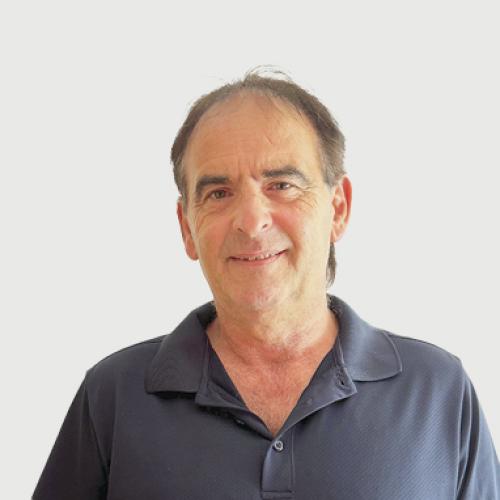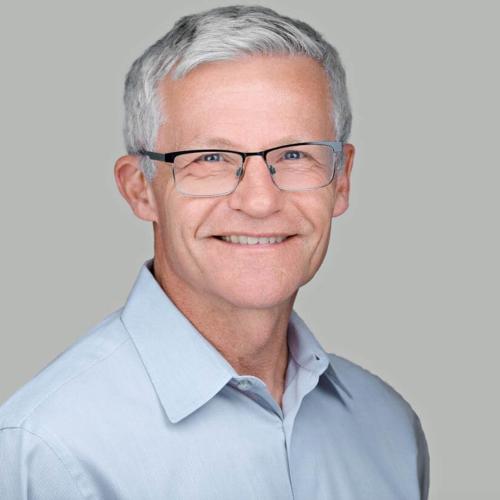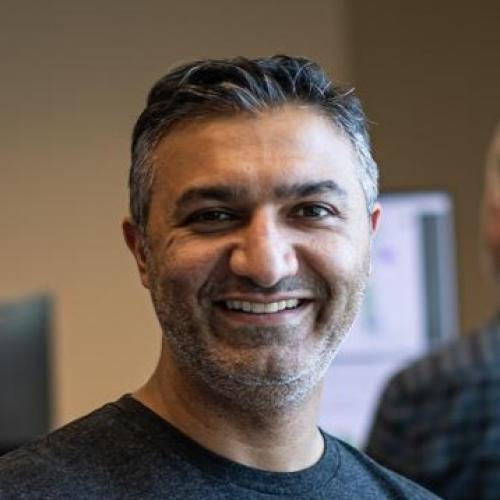
Aswini Atibudhi
Aswini is a Distinguished Architect at Walmart Global Tech, with over 22 years of IT experience in designing scalable AI/ML, micro frontend, microservices, and cloud applications. His professional expertise encompasses diverse domains including e-commerce, finance, telecom and healthcare meticulously developed through his tenure at Walmart, Cisco, Equinix, Finastra, and TCS. Over seven years at Walmart, he has been a founding member of critical platforms like Last Mile Delivery, Fleet Management, MerchOne, Supplier Portal and several others. As a recognized expert in generative AI, Aswini specializes in leveraging machine learning and large language models to create transformative digital experiences, including personalized content generation and AI-driven customer engagement.
He has received numerous awards including Walmart’s Innovation Award, Equinix’s Top Performer Award, and Cisco’s Group Race Award. With many certifications in AI, machine learning, and cloud technologies, he stays at the forefront of innovation. Known for his strategic insights, Aswini has a proven ability to deliver transformative AI solutions across industries.
As AI infrastructure outgrows tightly coupled systems, we’re witnessing a shift toward openness and modularity in designing full-stack solutions for AI. In this session, we’ll examine the rise of Software-Driven Fabrics (SDF) , a programmable, vendor-neutral control plane for modern AI networking. SDF makes real-time data coordination across heterogeneous accelerators and fabrics possible, offering a new, democratized model for GPU scalability and network resiliency.

Prashanth Thinakaran
Prashanth Thinakaran is a Distinguished AI Infrastructure Engineer at Clockwork Systems, a pioneer in nano-second precise network telemetry and software-driven resilience that addresses the unprecedented scale, performance, and reliability Modern AI workloads demand from GPU clusters. In this role, he partners with AI Infrastructure teams at enterprises, hyperscalers and neoclouds to increase their visibility into issues impacting cluster uptime and optimize their availability and utilization with Clockwork’s solution.
Previously, he helped AI-native companies build on cloud-based GPU platforms, providing deep technical guidance on distributed training and inference, multi-node scaling, and performance tuning across complex infrastructure stacks. His Neocloud experience bridged the gap between product engineering and customer enablement, helping fast-moving teams adopt best practices in massive-scale model deployment and operations. Prior to that, Prashanth played a pivotal role at Cerebras Systems - a market leader in high-speed inferencing, - in the design, and deployment of Condor Galaxy 1, a Wafer-scale supercomputer. His work enabled rapid deployment timelines and seamless scaling of AI infrastructure across globally distributed data centers designed for both Inference and Training.
Prashanth also holds a Ph.D. in Computer Science and Engineering from Penn State, where his research focused on high-performance computing and cloud systems. His academic work has been published in top-tier venues including USENIX NSDI, ACM Middleware, ICDCS, and ACM SoCC. He has authored over a dozen peer-reviewed papers and a book chapter, and served as a reviewer for journals such as IEEE TPDS and TCC. During his Ph.D., he held teaching roles in systems programming, and computer architecture, and collaborated with Intel, VMware, and Adobe Research through internships, solving systems challenges at the intersection of academia and industry.

Marc Evans
Marc Evans is a semiconductor executive with deep expertise in CPU and DSP IP and SoC architecture. At Andes Technology USA, he leads branding, go-to-market strategy, and strategic partnerships for Andes and its high-performance RISC-V subsidiary, Condor Computing.
He began his career in processor and memory system design at Amdahl, Hewlett-Packard, and Rambus, and was an early R&D team member at Tensilica. He later held leadership roles at Tensilica and CEVA, driving IP adoption across global accounts. Marc holds a B.S. from Rensselaer Polytechnic Institute.

Volker Politz
Volker Politz is the Chief Sales officer at Semidynamics, responsible for all IP sales and business development activities as well as product marketing. Prior to this, he was VP sales at Roviero, held EU Sales and Global Auto Business management positions in Verisilicon and worked as IP sales manager in Synopsys Europe. He was Vice President of Product and Segment Marketing at Imagination Technologies. He is an international marketing, business development and management executive with over 30 years’ experience in semiconductor and technology companies. He also held roles and responsibilities in Europe, Asia and the United States with experience built from engineering, marketing, sales, and general management positions at Hitachi and Renesas. He has broad know-how in vertical domains such as digital multimedia, broadcast technologies, automotive, industrial, mobile, security and AI. Volker holds a Masters engineering degree in communication electronics from Fachhochschule Konstanz, Germany and an MBA from Open University, United Kingdom.

Ian Smythe
Ian Smythe is the Vice President of Product Marketing at Baya. He recently joined Baya and brings over 25 years of international experience leading business groups and technology teams. Ian has a background in developing and implementing marketing strategies for major technology companies.
Before joining Baya, Ian was Vice President of Product Marketing at Arm, where he served on the leadership team and oversaw all product marketing activities across business areas. He led the team responsible for messaging around Arm’s recent IPO.
Ian has built relationships within the compute ecosystem and has extensive experience working with partners to understand changing compute needs that inform future product strategies. His expertise spans multiple market sectors and technologies, including CPU, graphics, data centre, mobile, automotive, IoT and Edge, open-source software stacks, and AI.
He began his tenure at Arm in 2009 as Director of Marketing for the Media Processing Group (MPG), focusing on the development and launch of the Arm Mali GPU, which became the world’s best-selling GPU. Prior to this, Ian held senior roles in marketing and engineering at companies which include a leading semiconductor vendor and a DSP start-up.

Ian Ferguson
The AI landscape is undergoing a monumental shift. After a decade where AI flourished in the cloud, scaled by hyperscalers, we are now entering the era of Physical AI. Physical AI is poised to touch every facet of our lives. Imagine industrial processes with unprecedented precision, diagnostic tools in medicine and machinery that offer deeper, more accurate insights, and robotic and automotive platforms transformed by intelligent, agentic AI.

Krishna Rangasayee
Krishna Rangasayee is Founder and CEO of SiMa.ai. Previously, Krishna was COO of Groq and at Xilinx for 18 years, where he held multiple senior leadership roles including Senior Vice President and GM of the overall business, and Executive Vice President of global sales. While at Xilinx, Krishna grew the business to $2.5B in revenue at 70% gross margin while creating the foundation for 10+ quarters of sustained sequential growth and market share expansion. Prior to Xilinx, he held various engineering and business roles at Altera Corporation and Cypress Semiconductor. He holds 25+ international patents and has served on the board of directors of public and private companies.

AK Karan
A.K. Karan is the VP of advanced engineering & innovation at Baxter International, a leading medical device supplier. Karan joined Baxter in 2021 and currently leads the strategy for the company’s automation, digital-transformation, and operational-excellence processes. Prior to joining Baxter, Karan held a variety of leadership roles spanning engineering, operations and digital transformation.

Saba Gurusubramanian
Saba Gurusubramanian leads engineering, product, and technology at Virya Autonomous Technologies (part of the Maini Group), where he focuses on building intelligent mobility solutions for people and material movement in controlled environments.
With over 14 years of experience in the automotive and mobility sector—including 12 years in the U.S. leading powertrain, active safety, ADAS, and autonomy programs—Saba has taken multiple systems from concept to production across global OEM platforms. His core expertise lies in systems engineering, with a strong foundation in rapid prototyping, system architecture, functional safety, HW/SW integration, and software-defined vehicle development.
He has led large, cross-functional teams across domains such as sensing, perception, localization, planning, controls, embedded systems, powertrain, UI/UX, and telematics—bridging deep tech with scalable real-world deployment.
An engineer at heart and automotive technologist by passion, Saba is driven by a vision to make mobility safer, smarter, and more sustainable through innovation.
In this session, learn how Amazon SageMaker HyperPod delivers a highly resilient and performant infrastructure purpose-built for training foundation models at scale. We will explore the latest HyperPod innovations that leading AI model development organizations such as Perplexity, Stability AI, and Hugging Face leverage to build state-of-the-art models. You will also discover how to efficiently build your own foundation models that work on your private data by customizing Amazon Nova or popular open-weight models like Llama. Whether you're fine tuning a model or building one from scratch, Amazon SageMaker AI makes it fast, cost-effective and scalable.

Sumit Thakur

Haseeb Budhani
Haseeb Budhani is the CEO and co-founder of Rafay Systems. He previously co-founded and led Soha Systems, which was acquired by Akamai Technologies, where he later served as Vice President of Enterprise Strategy. Haseeb has also held executive and leadership roles at Infineta Systems, NET, and several other technology companies. He holds an MBA from UC Berkeley’s Haas School of Business and a B.S. in Computer Science from the University of Southern California.

Sebastien Jean
Sebastien Jean is the Chief Technology Officer at Phison Electronics, where he focuses on developing technology strategy and building alliances with other innovative companies.
His current focus includes AI, Space, Security, and Enterprise solutions.
Sebastien also works closely with engineering teams to help integrate new concepts into products. With 26 years of experience and over 30 filed patents, he has established himself as a thought leader in the storage industry.
Before joining Phison, he held senior technology positions at Micron, SanDisk, and Western Digital. He earned a BS in Computer Science at the University of Ottawa (Canada).

AK Karan
A.K. Karan is the VP of advanced engineering & innovation at Baxter International, a leading medical device supplier. Karan joined Baxter in 2021 and currently leads the strategy for the company’s automation, digital-transformation, and operational-excellence processes. Prior to joining Baxter, Karan held a variety of leadership roles spanning engineering, operations and digital transformation.